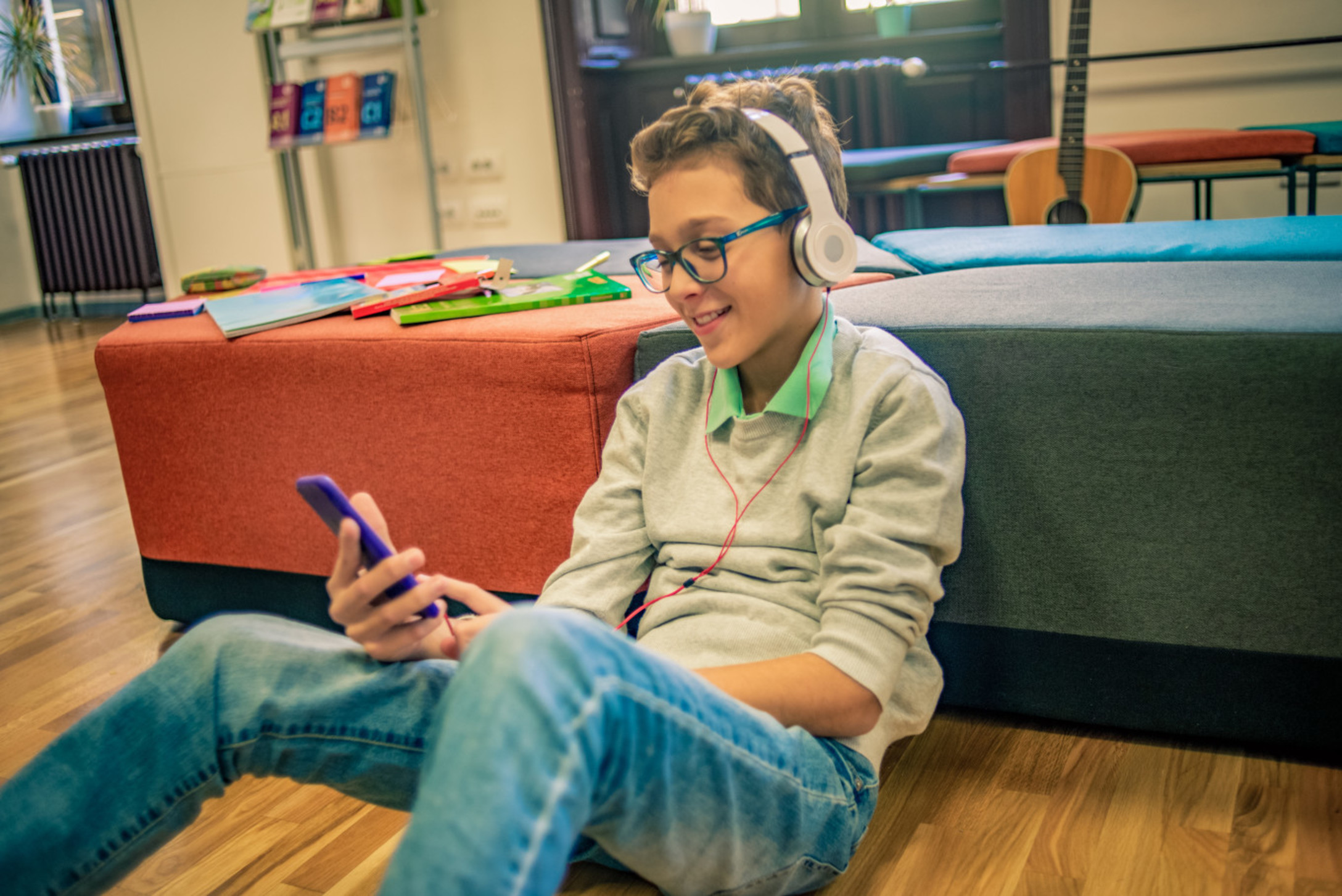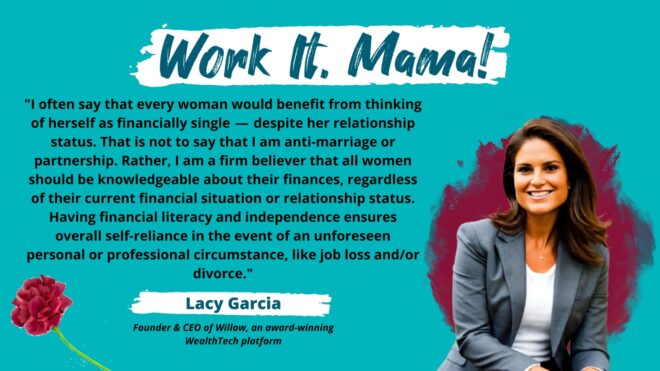
When it comes to trying to make sure we're keeping our kids safe online, it can feel like a never-ending task. We want our kids to be able to use the internet safely and have fun gaming or connecting with their friends, but we also want to make sure they aren't in spaces where they'll be seeing adult content or connecting with strangers. The challenge is that the internet is a huge place and it can be hard to keep up with all of the places where kids might hang out online.
That's why we're here to help. We've found 15 online places where kids are hanging out that moms might not be familiar with. This guide should help moms identify sites that might be a concern and should help start some conversations with kids about where they are spending their online time. Read on for an introduction to some spaces that might be where kids, tweens, and teens are lurking and hoping mom won't find out.
More from CafeMom: 8-Year-Old Boy Bought an AK-47 Online & Had It Delivered to His Home

The cool thing about Reddit is that there is literally a forum for finding threads on almost any topic we can imagine. The scary thing about Reddit is that, well, there are threads on almost any topic we can imagine. Add that to the fact that it has a lot of adult content as well as people using their anonymity to bully or make mean comments, and it is definitely not a site that kids should navigate on their own.
Yik Yak

Yik Yak is a location based messaging platform that was very popular on high school and college campuses but was shutdown from 2017-2021. Inside Higher Ed noted that this was “following a series of campus controversies involving bullying and racist threats.” Although Yik Yak has returned with new policies designed to limit bullying and hate speech, parents should talk to kids about the site and the potential dangers of apps that track their location data and make it possible for strangers to message teens.
Discord

Discord might be a familiar website for parents who are into gaming, but others might not know just how popular it is. The thing to know about Discord is that it is very, very easy for kids to connect to strangers there, because that is what the site is designed for! Discord has lots of chatrooms, direct messaging, voice chat, and video calls options around different games and communities. It can be a space where it is easy for kids to hear adult content and for bullying to happen, both during game play and while just hanging out.
More from CafeMom: Is Discord Safe for Your Teen’s Mental Health?
4chan

4chan is anonymous bulletin board site that is most frequently used by young men. Even though it is supposed to be for those 18 years or older, it isn’t difficult for younger users to access the site. 4chan doesn’t have any types of parental controls or privacy settings to help control the content a user might see. According to the digital safety site Internet Matters, 4chan’s “most popular board, /b/ or ‘random’, has fewer rules. In fact, it allows hate speech such as racism and transphobia along with specific pornographic and grotesque content.”
Google Docs

Compared to some of the other sites on this list, Google Docs seems so tame, right? And it is, except that some kids and teens are using it as a way to bypass rules against phone usage both in and out of school. They simply start a doc, share it with a friend and then can use it as a way message with each other.
Sarah Johnston, a mom from Indiana, shared with CafeMom that she found her daughter using it as a way to keep in touch with friends when her phone had been taken away and was using it to share homework answers, too. “When I mentioned it to a friend who is a teacher, she mentioned that it was causing problems in classrooms too, both in terms of cheating and distracting kids,” she tells us.
8chan/8kun

8chan, which is also known as 8kun, is a website connected with some of the worst that the internet has to offer: child pornography, neo-Nazis, QAnon and other dangerous conspiracy theories, and connections to mass shooting events. Although its usage numbers are small compared to other sites, any activity on this site should be a massive red flag for parents.
Tumblr

According to Common Sense Media, Tumblr is “a cross between a blog and Twitter: It’s a streaming scrapbook of text, photos, and/or video and audio clips. Users create and follow short blogs, or ‘tumblogs,’ that can be seen by anyone online (if they’re made public). Many teens have tumblogs for personal use: sharing photos, videos, musings, and things they find funny with their friends.”
Tumblr can be great for kids wanting to find communities around common interests (like favorite movies or books) or to share their own art and writing. The downside is that things such as porn, images of self-harm, and even pro-eating disorder content also can be easy to find.
Whisper

Whisper is an app that allows anonymous users to post confessions and to chat with each other. There are no profiles or followers features, but users can connect via chat, so it is a space where teens can interact with strangers. They may also see content that can range from funny to deeply concerning. This is used mostly as a phone app, so it’s one to keep an eye out for in case kids attempt to download it.
Omegle or Monkey

Omegle, also known as Monkey, is an app that allows for users to be randomly connected via video chat to users all over the world. Omegle was shut down because of incidents of sexual content being directed at minors but has resurfaced and has some copy chat apps. The dangers are obvious on this: It is literally designed to help users talk to strangers!
There is an interesting shift happening for some kids and teens where they are moving away from straightforward text messages (which parents might think to check) to using messaging apps that let them do easier group chats and to send photos, audio, and video messages. WhatsApp is one of the most popular sites in the world for this, with more than 2 billion users. It isn’t necessarily a harmful app but one that parents should be aware of if they are concerned about how much texting their kids are doing.
Amino

Amino is an app designed to help users (who are supposed to be 13 or older to “Meet likeminded people around the world.” Teens can use chat, text, and voice functions to connect with friends and strangers alike. According to Common Sense Media, the site was “not made with kids in mind” and “mature content and bullying is common,” so this is one to take a closer look at for younger users.
Yubo

Yubo markets itself as a “live social discovery app” but some users jokingly refer to it as “Tinder for teens.” (Those are some alarming words!) The app allows users to swipe left or right to get connected to other user profiles and then to connect further via Snapchat or Instagram. One safety concern with Yubo is that it doesn’t have private profiles and uses geotagging, so user locations are easy to find.
Askfm

Askfm is a site that bills itself as a space to “meet and date with over 411 million people” and only has a stated minimum age of 13 years old. According to Tech Radar, Askfm is on the list of riskiest apps for kids because “many people abuse it to ask vulgar questions and leave offensive comments for other users. Cyberbullying is rampant on it, and this is bad for your kids’ mental health.”
Kik Messenger

Kik is an instant messenger app with no age restrictions, so anyone with a smart phone can download it. It is free to download but has lots of covert advertising, such as prompting chats between users and brands. Parents who regularly check their kid’s text messages to make sure everything is on the up and up should know that messages in Kik won’t show up in the text history.
Blendr

Blendr is another messaging service that uses geolocating to help connect people in the same area. It also landed on Tech Radar’s list of risky websites for kids because “The app is commonly used for flirting and posting pictures and videos for others to rate. Of course, this makes it a magnet for cyberbullying that can affect your kid’s self-esteem. It can also be abused to collect sensitive information from unsuspecting kids.”







